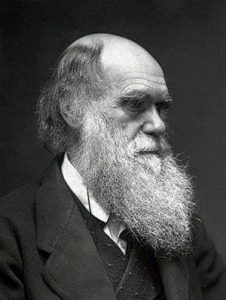Historic Characters
Those who changed the world
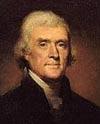
Thomas Jefferson
(1743–1826) American President 1801– 809. Author of the Declaration of Independence. A leading figure in America’s early development. During the American Revolutionary War (1775-83), Jefferson served in the Virginia legislature and the Continental Congress and was governor of Virginia. He later served as U.S. minister to France and U.S. secretary of state, and was vice president under John Adams (1735-1826). Jefferson, a Democratic-Republican who thought the national government should have a limited role in citizens’ lives, was elected president in 1800. During his two terms in office (1801-1809), the U.S. purchased the Louisiana Territory and Lewis and Clark explored the vast new acquisition. Conceptual Cognofile
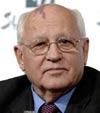
Mikhail Gorbachev
President of Soviet Union 1985–1991, oversaw the transition from Communism to democracy in Eastern Europe. He was general secretary of the Soviet Union Communist Party from 1985–1991. He was also the first democratically elected President in 1990. Mikhail Gorbachev played a crucial role in dismantling the Communist grip on power in both the Soviet Union and Eastern Europe. His aspirations for democracy and reform opened the way for the end of the Cold War and the bringing down of the Berlin Wall. Since leaving office, Gorbachev has worked tirelessly promoting new efforts at social justice and concern for the environment through his organization, the Green Cross. Mikhail Gorbachev was awarded the Nobel Peace Prize in October 1990. Verbal Cognofile
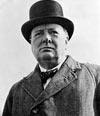
Winston Churchill
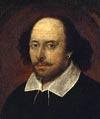
William Shakespeare
(1564–1616) English playwright, poet, and actor, widely regarded as the greatest writer in the English language and the world’s greatest dramatist. He is often called England’s national poet and the “Bard of Avon” (or simply “the Bard”). His extant works, including collaborations, consist of 39 plays 154 sonnets , two long narrative poems, and a few other verses, some of the uncertain authorship. His plays have been translated into every primary and are performed more often than any other playwright. living languageCompose Cognofile
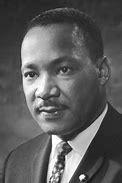
Martin Luther King, Jr.
(1929–1968) Civil Rights leader, American Christian minister, and activist who became the most visible spokesperson and leader in the civil rights movement from 1955 untilhis assassination in 1968. King is best known for advancing civil rights through nonviolence and civil disobedience, inspired by his Christian beliefs and the nonviolent activism of Mahatma Gandhi Verbal Cognofile
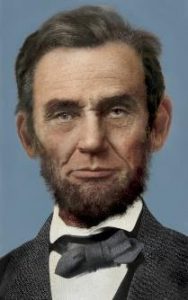
Abraham Lincoln

Nelson Mandela

Joseph Stalin
(1878–1953) Stalin was absolute ruler and dictator of the Soviet Union from 1924 until he died in 1953. Stalin presided over the industrialization of the Soviet economy and the collectivization of agriculture, leading to the deaths of millions. In consolidating his absolute power, he ordered many purges in which people in positions of power were executed or sent to gulags. Stalin was also instrumental in forming the Cold War and annexation of Eastern European countries after the end of World War II. Analyze Cognofile

Mother Teresa
(1910–1997) She was a Roman Catholic nun who devoted her life to serving the poor and needy worldwide. She spent many years in Kolkata (Calcutta), India, where she founded the Missionaries of Charity, a religious congregation devoted to helping those in great need. In 1979, Mother Teresa was awarded the Nobel Peace Prize and became a charitable, selfless work symbol. In 2016, Mother Teresa was canonized by the Roman Catholic Church as Saint Teresa of Calcutta. Compose Cognofile
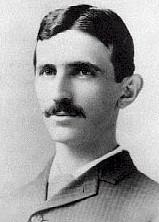
Nikola Tesla

Albert Einstein
Born in Germany in 1879, Einstein is one of the most celebrated scientists of the Twentieth Century. His theories on relativity laid the framework for a new branch of physics, and Einstein’s E = mc2 on mass-energy equivalence is one of the most famous formulas in the world. In 1921, he was awarded the Nobel Prize in Physics for his contributions to theoretical physics and the evolution of Quantum Theory. Einstein is also well known as an original free-thinker, speaking on various humanitarian and global issues. After contributing to the theoretical development of nuclear physics and encouraging Franklin D. Roosevelt to start the Manhattan Project, he later spoke out against nuclear weapons. Theory Cognofile

Woodrow Wilson
President of the U.S., 1913-1921. He is best remembered for keeping the U.S. out of world War I, until reluctantly entering in 1917. At the end of the war, Woodrow Wilson formulated his 14 points, which sought to create an international League of Nations and institute principles of self-determination and justice as the basis for the truce. He was awarded the Nobel Peace Prize in 1919. Woodrow Wilson was also a progressive who attempted to control big business and end elitism in universities. Verbal Cognofile

Martin Luther
